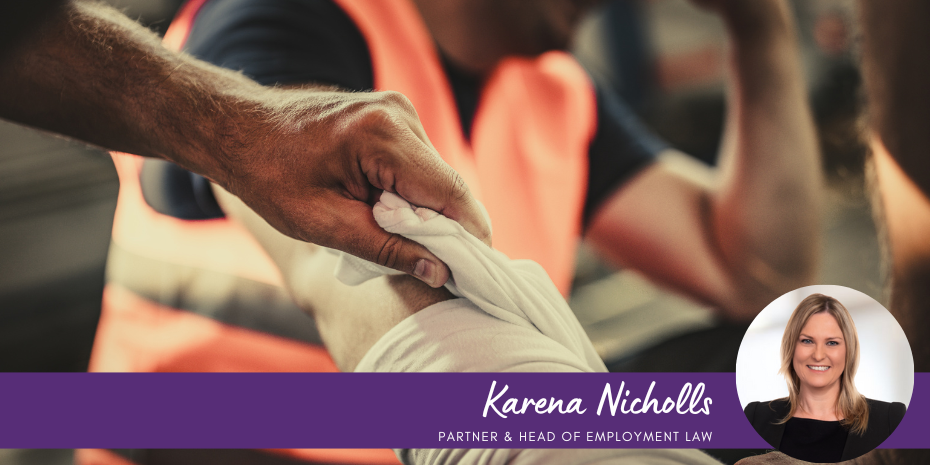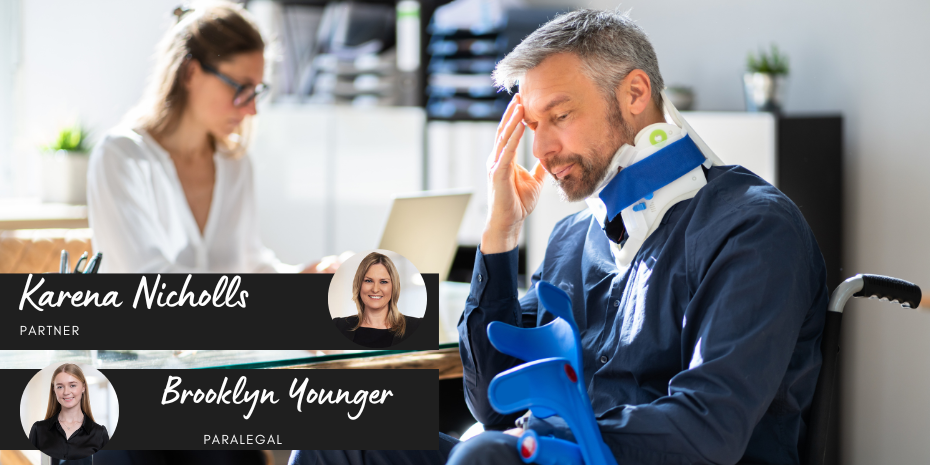KEY TAKE OUTS:
• Sporting organisations do owe a duty of care to their participants, but this duty is limited, especially concerning risks inherent to the sport.
• Participants in sport may be considered to have assumed the inherent risks of the activity, which can limit the success of personal injury claims.
• Claims for injuries sustained due to sporting accidents must demonstrate that their injury resulted from a breach of duty, not just that the injury occurred.
Case Summary
Ethan Lowe, retired professional Rugby League player, was injured during a match sanctioned by the National Rugby League (NRL). During the game, Lowe suffered a significant injury following a tackle by an opposing player. The tackle, although within the rules of the game, resulted in severe physical harm to Lowe, leading him to bring legal action against the NRL.
Lowe argued that the NRL, as the governing body, had a responsibility to protect its players from unnecessary harm, particularly from dangerous tackles that could cause serious injury. He claimed that the NRL’s rules and regulations were inadequate in preventing dangerous play and that the league’s failure to implement stricter safety regulations or provide better medical guidance contributed to his injury. Lowe also pointed to other instances of player injuries as evidence that the NRL had not taken sufficient action to prevent foreseeable harm.
Duty of Care of Governing Bodies in Sport
Duty of care refers to the legal obligations of one party to avoid causing harm to another. In the context of sport, this duty is often shaped by the inherent risks associated with the activity. Participants in sport are expected to take reasonable care to avoid actions that could foreseeably harm others as seen in Woods v Multi-Sport Holdings Pty Ltd [2002]. The standard of care required is typically adjusted to account for the nature of the sport, recognising that certain risks are inherent and voluntarily accepted by participants.
When it comes to governing bodies in sport, such as the NRL (pursued by its Insurer, Lloyd’s of London), the duty of care may extend to ensuring that the rules and regulations, and equipment
standards are designed to minimise unnecessary risks. However, as seen in Agar v Hyde (2000), the courts have generally held that governing bodies do not owe a specific duty of care to individual players, largely because the risks involved in the sport are considered inherent and voluntarily accepted by participants. This was argued by the Defendant in the case of Lowe v Certain Underwritings at Lloyd’s of London Subscribing to Policy Number ATCSI 00100.
The Defendant’s (NRL) Argument
The Defendant argued that the rules in place were sufficient to protect players and that the tackle leading to Lowe’s injury was within the normal cause of play. They also argued that they had provided adequate safety measures, including medical staff and guidelines for players, and that Lowe’s injury was an unfortunate but foreseeable outcome of playing contact sport.
Findings of the Court
The Judge acknowledged that while the NRL held a duty of care to its players, this duty was not absolute. The Court emphasised that the risks inherent to Rugby League were a significant factor in determining liability. The Court found that the tackle, while unfortunate, did not result from any negligence or breach of duty by the NRL. The judge noted that the NRL had implemented standard safety measures and recognised that Lowe, as a professional athlete, was aware of and had accepted the risks associated with playing rugby league, including the possibility of sustaining serious injury.
The Court ultimately ruled in favour of the NRL, dismissing Lowe’s claim, on the finding that the NRL had not breached its duty of care. The Court concluded that the injury sustained by Lowe was an inherent risk of the sport, one that Lowe had accepted by choosing to play rugby league. The NRL was seen to have taken reasonable steps to minimise risks, and there was no evidence that the league’s actions or inactions had directly contributed to Lowe’s injury.
This Decision and It’s Impact on Future Personal Injury Claims in Sport
The decision in Lowe v Lloyd’s of London underscores the principle that participants in inherently dangerous activities, such as contact sports, may have limited recourse for injuries sustained during normal play unless they can prove a breach of duty of care by the responsibility organisation. This case reinforces the legal threshold for establishing negligence in sports-related personal injury claims and may influence how future cases are adjudicated, particularly regarding the duty of care owed by sports organisations to their participants.
Case Citation
Lowe v Certain Underwritings at Lloyd’s of London Subscribing to Policy Number ATCSI 00100.
If you or someone you know has suffered an injury while playing sport, it is crucial to seek professional legal support to protect your rights. Here at Coutts Lawyers and Conveyancers, out dedicated team of experiences Personal Injury law professionals are here to help you navigate complex legal processes and secure the compensation you deserve. Contact us today for a confidential consultation and take the first steps towards justice and peace of mind.
ABOUT KARENA NICHOLLS:
Karena is a Partner at Coutts and is the Head of our Injury Compensation (with extensive knowledge in personal injury) and Employment Law teams. She is passionate and dedicated to helping her clients understand their rights and obligations and advising them on the best course of action to achieve their desired outcomes. It is her practical and client-orientated approach that has attributed to her authentic reputation positioning her as a highly regarded compensation and employment lawyer.




